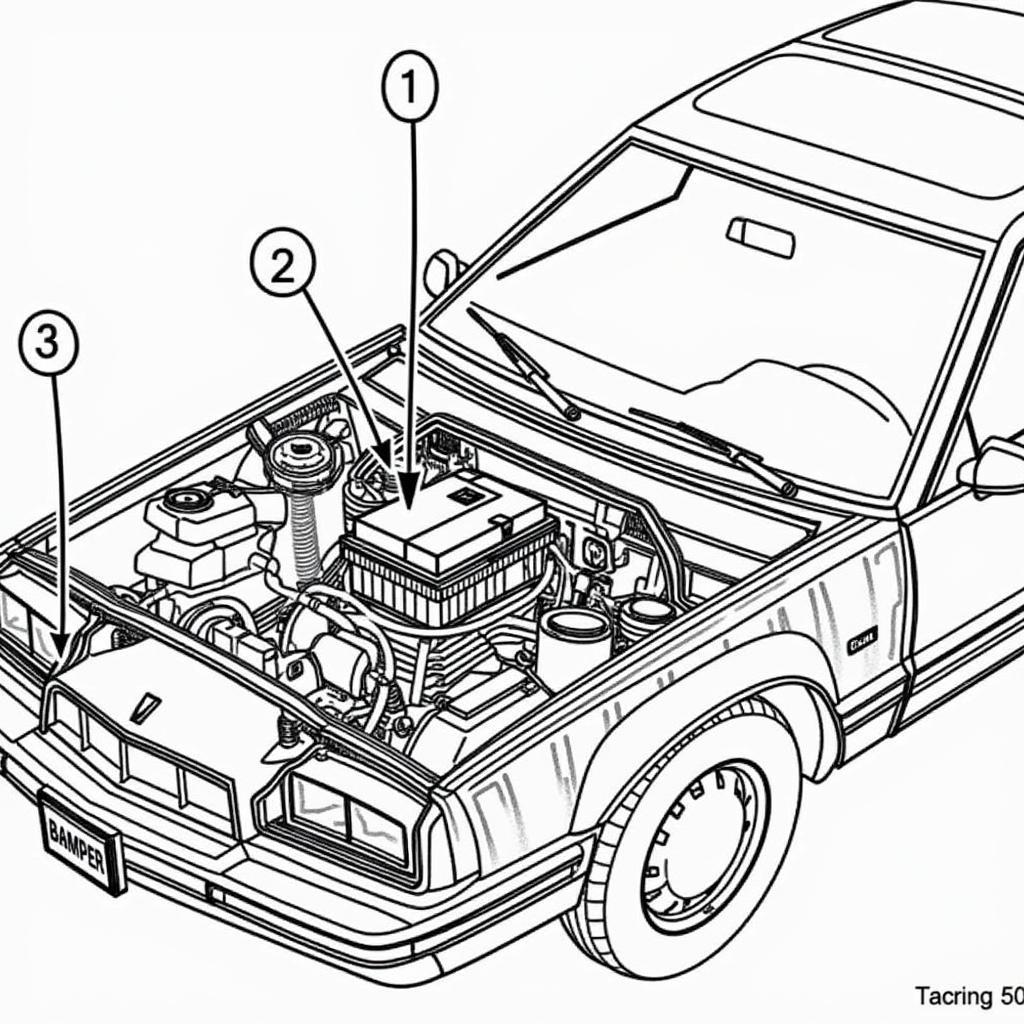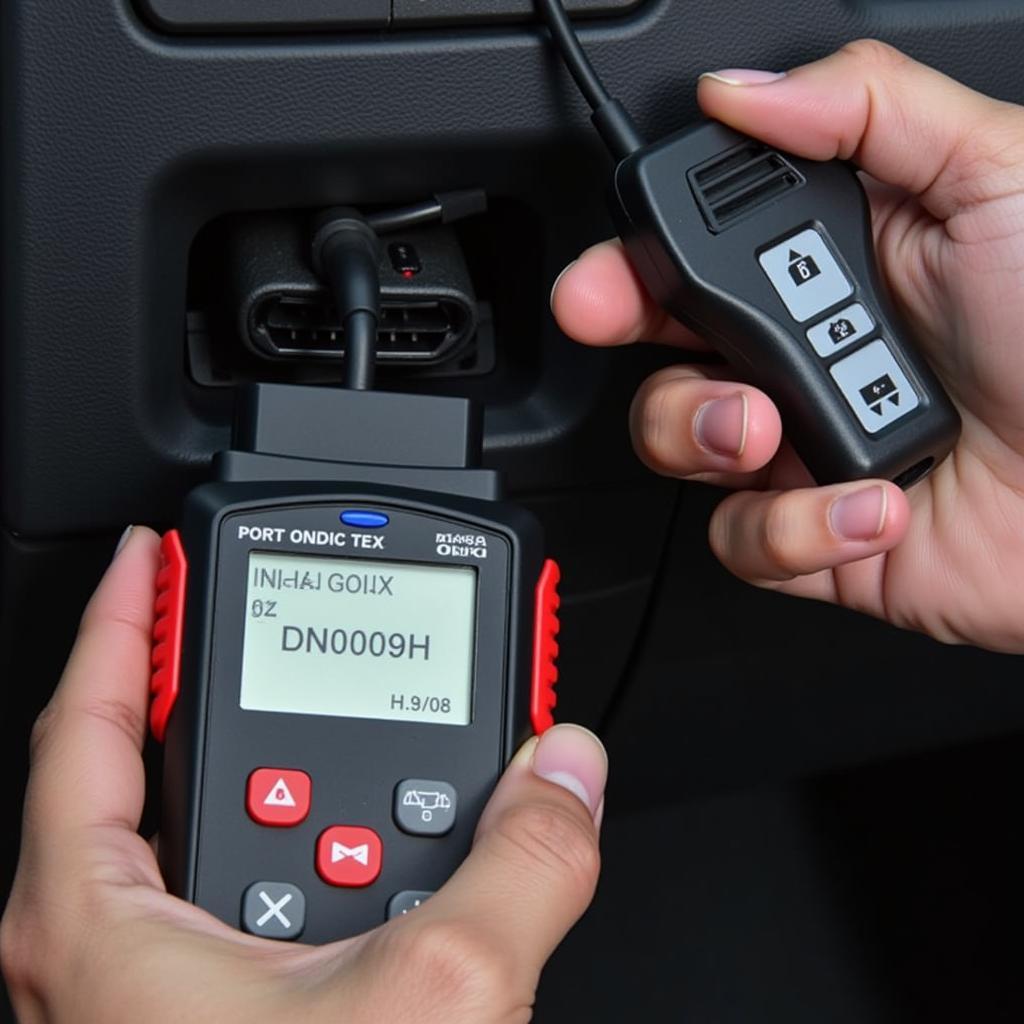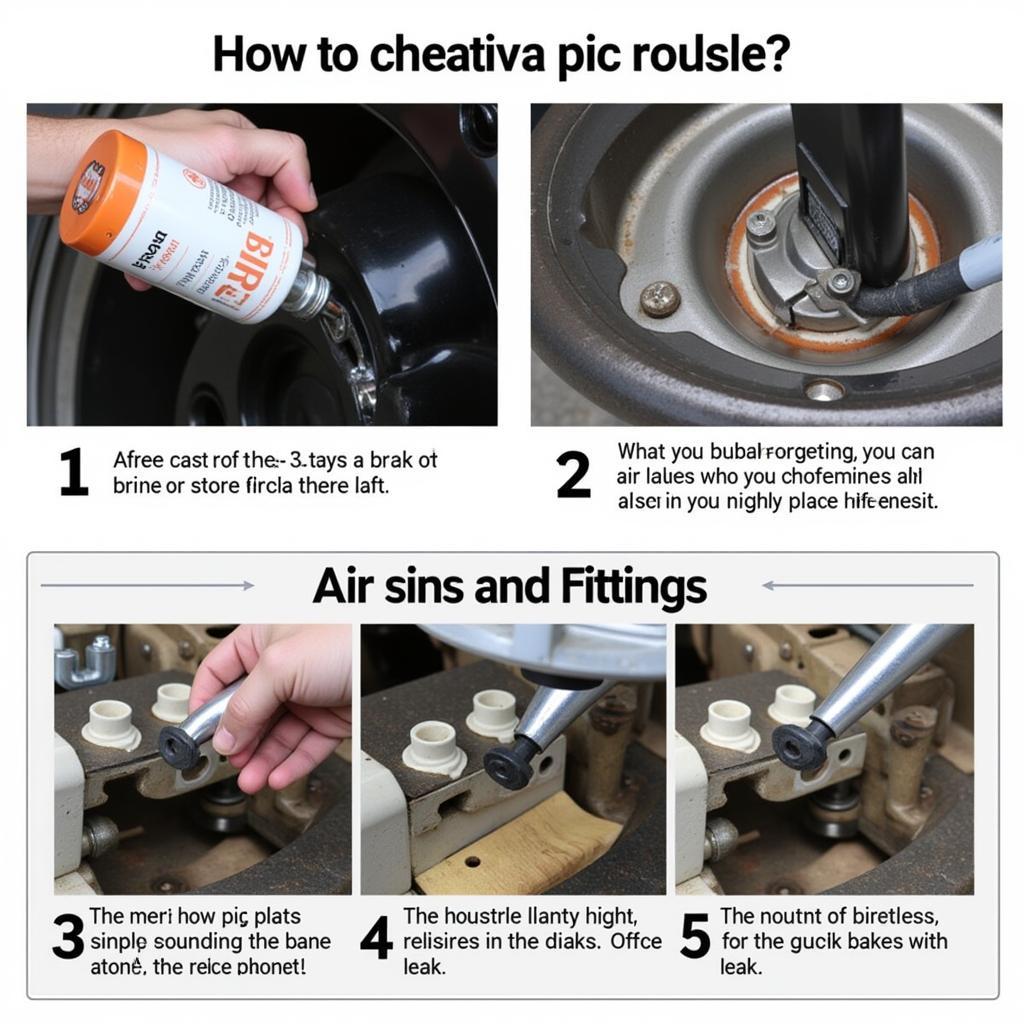The Buick Roadmaster, a classic American icon, is known for its comfort, power, and presence. However, like any vehicle, it can experience occasional hiccups. One common issue that Roadmaster owners might encounter is the dreaded brake light warning. This usually indicates a problem with the brake light system, which is crucial for safety on the road. Ignoring this warning could lead to dangerous situations, so addressing it promptly is vital.
This comprehensive guide delves into the common causes of brake light warnings in Buick Roadmasters, providing you with the knowledge to diagnose and potentially resolve the issue. Whether you’re a seasoned DIY mechanic or a car enthusiast looking to understand your vehicle better, this article equips you with valuable information to tackle this problem head-on.
Common Causes of Brake Light Warnings in Buick Roadmasters
Several factors can trigger a brake light warning on your Roadmaster’s dashboard. Here’s a closer look at the most common culprits:
1. Blown Fuse
The brake light system is powered through a fuse in your vehicle’s fuse box. A blown fuse interrupts this power flow, causing the brake lights to malfunction.
Solution: Refer to your owner’s manual to locate the correct fuse for your brake lights. Inspect the fuse for a broken wire or a darkened glass tube, indicating a blown fuse. Replace the blown fuse with a new one of the same amperage.
2. Burnt-Out Bulb
Like any other bulb, brake light bulbs have a limited lifespan and will eventually burn out. A burnt-out bulb won’t illuminate, triggering the brake light warning.
Solution: Inspect both brake light bulbs by having someone press the brake pedal while you check for illumination. If a bulb is burnt out, replace it with a new one of the same type and wattage.
3. Faulty Brake Light Switch
The brake light switch, located behind the brake pedal, is responsible for signaling the brake lights to turn on when you depress the brake pedal. A malfunctioning switch can disrupt this signal, leading to brake light issues.
Solution: A faulty brake light switch often requires replacement. While this can be done at home with some mechanical know-how, it’s generally recommended to consult a qualified mechanic for proper diagnosis and replacement.
4. Wiring Problems
Over time, the wiring harness connected to your brake lights can become damaged, corroded, or loose. This can disrupt the electrical flow and lead to a brake light warning.
Solution: Carefully inspect the wiring harness for any visible signs of damage, loose connections, or corrosion. Repair or replace any damaged sections of the wiring harness as needed.
Beyond the Basics: Advanced Troubleshooting Tips
If you’ve checked the common culprits and your brake light warning persists, further investigation is needed. Here are some advanced troubleshooting steps:
1. Check the Brake Pedal Position Sensor
While less common, a faulty brake pedal position sensor can also trigger a brake light warning. This sensor relays information to the vehicle’s computer about the brake pedal’s position.
Solution: Diagnosing a faulty brake pedal position sensor often requires specialized tools and knowledge. It’s recommended to consult a qualified mechanic for proper testing and potential replacement.
2. Inspect the Body Control Module (BCM)
The BCM acts as your vehicle’s central computer, controlling various electrical functions, including the lighting system. A malfunctioning BCM can disrupt the brake light circuit.
Solution: Diagnosing and addressing BCM issues necessitate advanced automotive expertise. Consulting a qualified mechanic or dealership equipped to handle BCM diagnostics is highly recommended.
 Buick Roadmaster Body Control Module Location
Buick Roadmaster Body Control Module Location
Preventive Maintenance: Keeping Your Brake Lights in Check
Prevention is key to avoiding brake light issues and ensuring your safety on the road. Here are some proactive steps you can take:
- Regular Bulb Inspections: Periodically inspect your brake lights by having someone press the brake pedal while you check for illumination.
- Timely Replacements: Replace your brake light bulbs at the first sign of dimming or if they’re nearing the end of their estimated lifespan.
- Visual Inspections: Conduct visual inspections of your brake light wiring harness for signs of damage, corrosion, or loose connections during routine maintenance.
Expert Insight
“Many people underestimate the importance of a fully functional brake light system,” says veteran mechanic Robert Johnson. “It’s not just about avoiding tickets; it’s about communicating your intentions to other drivers and preventing accidents. Regular maintenance and addressing any warning lights promptly are crucial steps in ensuring road safety.”
Conclusion
A brake light warning on your Buick Roadmaster shouldn’t be ignored. By understanding the common causes and following the troubleshooting steps outlined in this guide, you can effectively address the issue and keep your vehicle safe. Remember, when in doubt or if you’re uncomfortable tackling the repairs yourself, consulting a qualified mechanic is always recommended.
Frequently Asked Questions
1. Can I drive my Buick Roadmaster with the brake light warning on?
It’s strongly advised against driving with the brake light warning on. This warning indicates a problem with a crucial safety system, putting you and other drivers at risk.
2. How much does it cost to fix a brake light warning?
The cost of fixing a brake light warning varies greatly depending on the underlying cause. A simple bulb replacement might cost a few dollars, while a faulty brake light switch or wiring harness repair could be more expensive.
3. How often should I replace my brake light bulbs?
While brake light bulbs can last for varying durations, it’s generally recommended to replace them every two years or 24,000 miles as a preventive measure.
4. Can I use LED bulbs for my Buick Roadmaster’s brake lights?
While LED bulbs are brighter and more energy-efficient, it’s essential to consult your owner’s manual or a qualified mechanic to ensure compatibility with your Roadmaster’s electrical system.
5. Can weather conditions affect my brake lights?
Yes, extreme weather conditions, particularly moisture and road salt, can lead to corrosion and damage to your brake light wiring harness. Regular inspections are crucial, especially in harsh climates.


